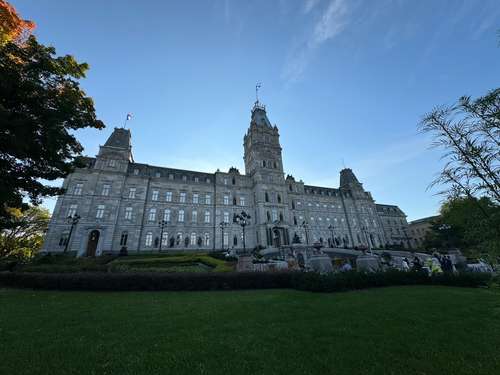The recent announcement by the leader of Kent County Council has left many residents scratching their heads. No decision on council tax changes has been made, with discussions postponed until after the upcoming election. People are wondering, what does this mean for our wallets and services? It's not just about numbers on a bill; it’s a sign of deeper financial and administrative challenges within the region.
The delay in decision-making has ignited a debate over the council’s financial challenges and the need for more funding. With pressures rising from the demands of social care and other public services, many community members feel that the uncertainty is affecting public opinion and shaking the trust in local government. It seems like every council meeting now is shrouded in an air of tension and anticipation.
For many, the situation feels like waiting for a storm to break—a mix of anxiety and hope. The council tax issue is not just a local matter. It represents a microcosm of the broader policy debates and financial dilemmas facing local authorities across the UK. Let’s dive into a few key areas to understand this better.
Council Tax: A Looming Dilemma
At its core, the issue is about council tax in Kent. The original plan to reassess tax rates has been shelved for now, generating uncertainty among both taxpayers and council officials alike. The delay has left many residents wondering when the next change will be announced and what impact it will have on their day-to-day lives.
The decision to postpone discussions until after the election speaks volumes about the complex interplay between financial planning and politics. The fact that local government finance remains at the forefront of such debates underlines how critical thoughtful budget planning really is. Readers might ask: why is it so hard to simply decide and move forward? Frankly, balancing the books while ensuring public services remain robust is much like trying to walk a tightrope.
Some residents feel that increased council tax could be a lifeline to local services while others worry it might stretch budgets too thin. In council meetings, the conversation often pivots towards the need for a well-defined taxation policy that addresses both current demands and future economic implications. The uncertainty can create a ripple effect, influencing everything from public opinion to broader policy debates across the region.
Local Government’s Financial Balancing Act
The heart of the matter lies in the council's struggle to manage its finances while upholding essential services. The postponement of the council tax decision is a direct reflection of this balancing act. With the pressure mounting to increase funding for social care and other critical public services, the local government is caught between a rock and a hard place.
It’s like trying to fill a leaky bucket with water—no matter how much you add, there’s always a deficit. The region’s financial challenges underscore the broader issues affecting local government. The delay in council tax adjustments is not just a bureaucratic pause; it signals a step back to reassess priorities, budgets, and the economic impact of potential tax changes.
The uncertainty fuels a lot of taxpayer concerns, and when people start feeling the pinch in their wallets, the community response is swift. Recent council meetings have seen heated debates about whether the tax rate should be adjusted now or later. This back-and-forth showcases both the difficult choices the council has to make and the real-world implications of those choices on local services and community welfare.
Local authorities across Kent and beyond face similar headlines in regional news. Each decision carries weight not just on public finances, but on the trust residents place in officials to manage government finance prudently. Without a clear decision, the financial impact remains a grey shadow, hovering ominously over the community.
Community Response and Public Opinion
The murmurings from local residents are growing louder as the uncertainty drags on. People are increasingly vocal in community forums and social media, discussing how these delays could affect their day-to-day lives. Many believe that the council tax decision should be finalised sooner rather than later, particularly with the economic challenges many families face today.
A number of residents have described the situation as frustrating and confusing. There’s a palpable feeling that the council is in a state of limbo—where promises of improved local services hang in the balance. This sentiment is echoed across different neighbourhoods in Kent, where local government’s hesitancy seems to reflect its broader struggles with budget planning and funding allocations.
The public opinion is split. Some individuals are sympathetic, arguing that the postponement might provide an opportunity for more thorough financial analysis. Others feel that the delay is a classic case of indecision that adds pressure on families already struggling with taxpayer concerns.
In conversations at local coffee shops or community centres, residents often draw parallels between the council’s approach and that of a driver facing a series of sharp bends on a foggy night – unsure which turn could lead to smoother roads or more obstacles ahead. This mix of cautious optimism and uncertainty defines the current public sentiment.
The Path Forward: Election and Policy Debate
With the upcoming election on the horizon, the postponed decision on council tax changes has become even more politically charged. The delay has set the stage for a significant policy debate, one that many see as a critical factor in the upcoming electoral campaign. How will candidates propose to address the financial challenges at hand?
The political implications are enormous. Leaders and candidates are now tasked with developing robust plans that not only address the financial imbalance but also ensure that public services are not compromised. During recent council meetings, policy debates have intensified, with discussions that feel much like a chess match—each move carefully considered while keeping an eye on both immediate and long-term implications.
One of the critical questions many voters are asking is whether the council tax increase is truly beneficial in the long run. Could a well-structured increase be the key to unlocking better local services, or is it merely a temporary fix for long-standing financial issues? Such questions form the crux of the debate, echoing through every regional news report and community forum in Kent.
Analysts have observed that the decision, postponed even if just for now, reflects the challenges local governments have when balancing political, financial, and community demands. With the stakes this high, both the candidates and the incumbent council are under immense pressure to deliver a clear, actionable plan before voter sentiment shifts irrevocably.
In the end, the path forward will require tough choices and a transparent dialogue with the public. The conversation needs to focus on workable solutions that alleviate taxpayer concerns while stabilizing the unprecedented financial impact on public services. It is in these untimely delays that we see a mirror reflecting the inherent complexities of local government and the delicate dance of policy-making amid financial uncertainties.
As we watch these events unfold, it becomes clear that the decision on council tax in Kent is more than just a number on a statement—it’s a representation of broader challenges and the intricate interplay of local government, economic impact, and community response. With the election approaching, the coming months promise to be filled with debates, challenging proposals, and perhaps, a long-awaited clarity that will finally light the path forward for both the council and the residents of Kent.




